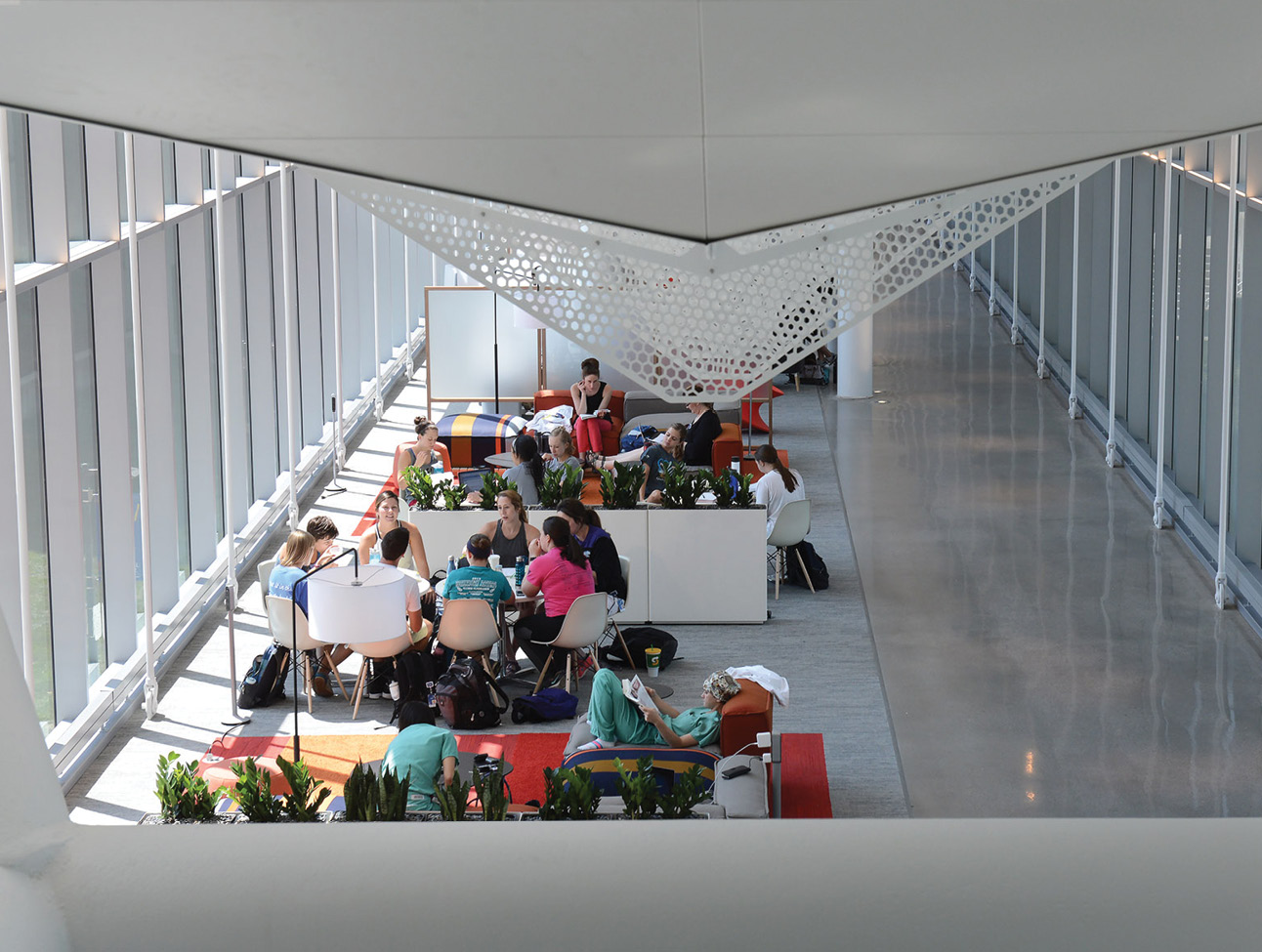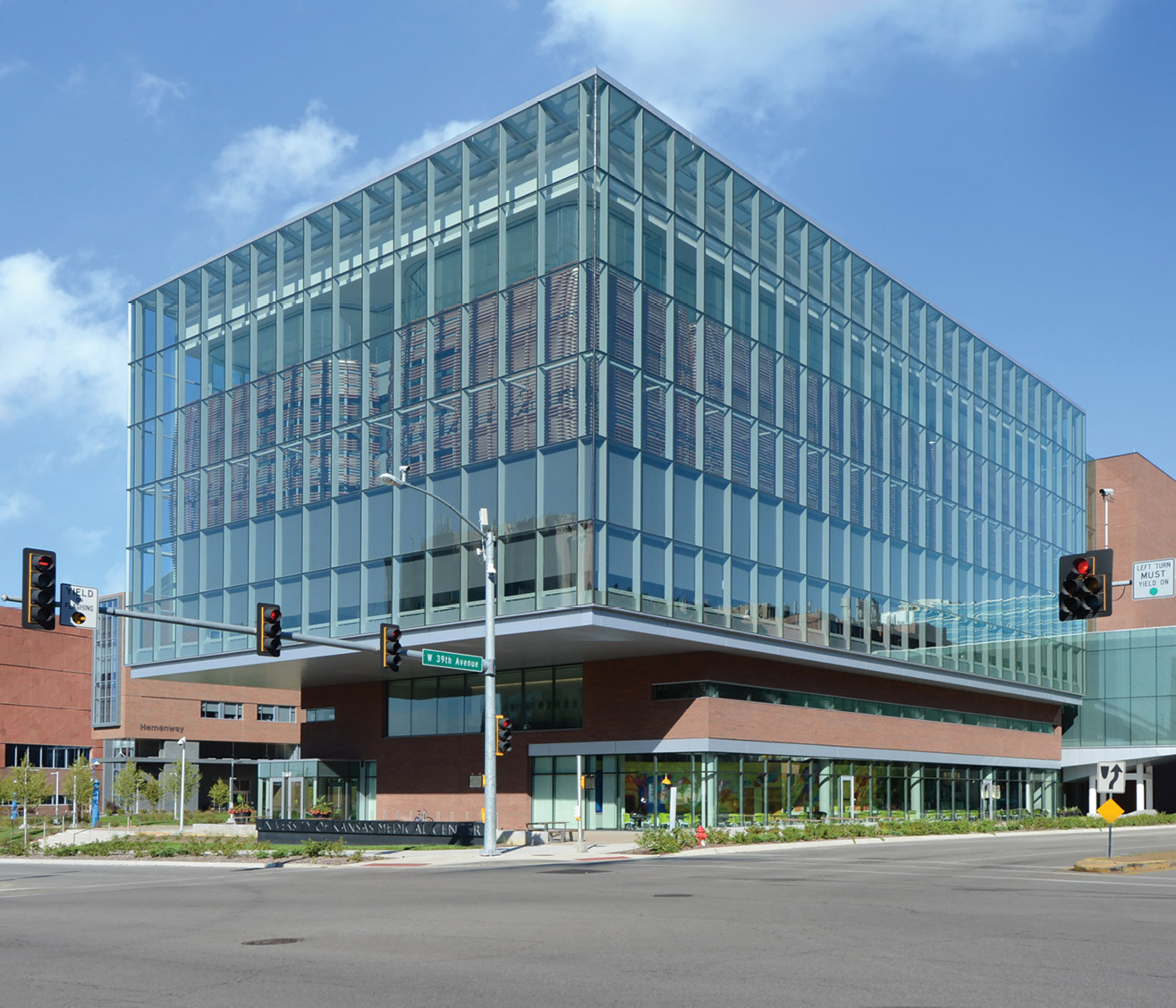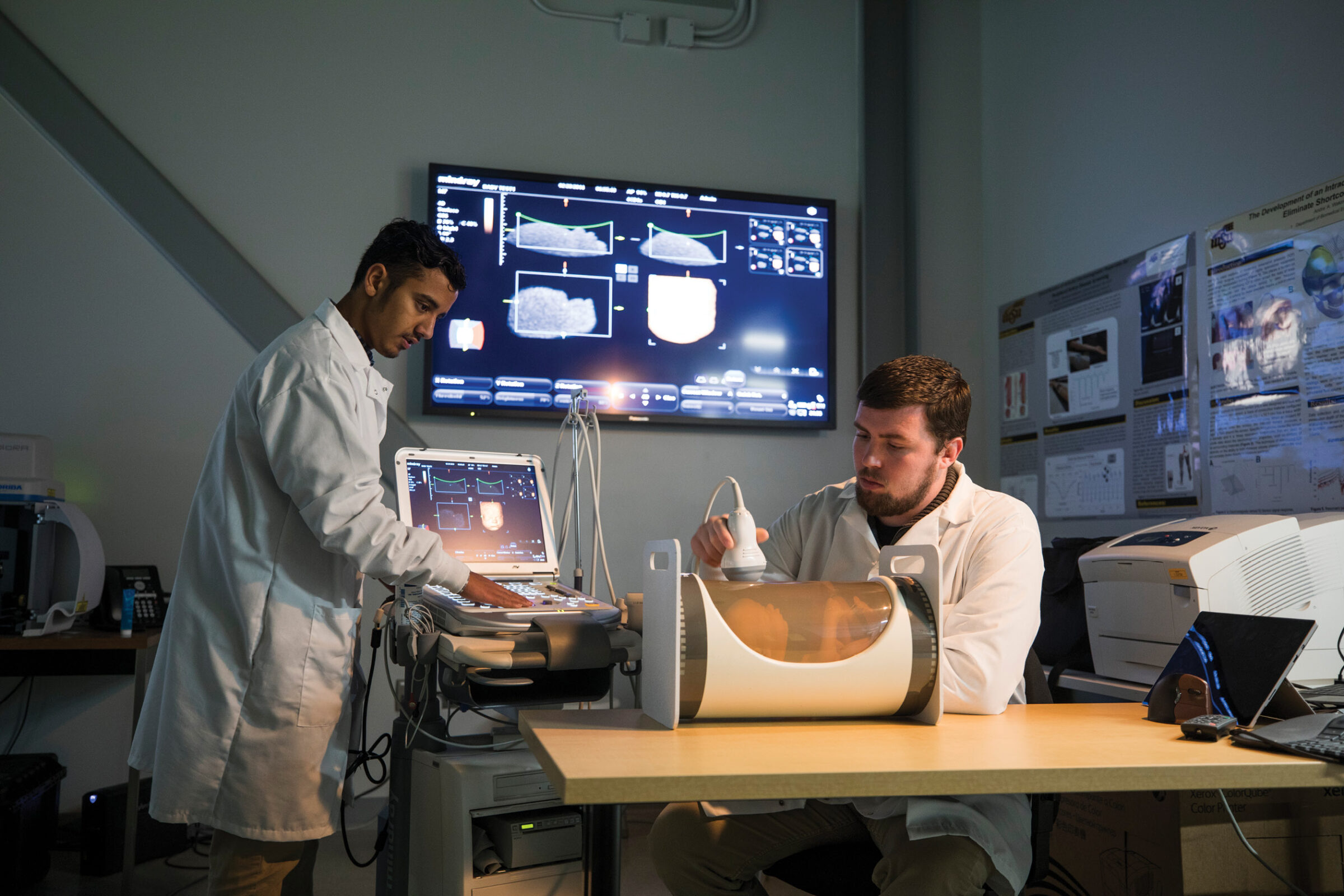This year has been quite exciting for Kansas’ burgeoning biotech cluster. KCAS Bioanalytical and Biomarker Services opened a $28 million laboratory in Olathe (creating 175 new jobs), MilliporeSigma invested $25 million to establish a location in Lenexa (creating 60 jobs) and Eurofins Viracor also expanded its operations in Lenexa (creating 235 new jobs).
Yet these investments are only the tip of the iceberg.
Research institutions throughout the state have embarked on ambitious projects to establish high-tech resources, expand skills training and make room for more life sciences companies. Anchored by their efforts, this industry is exploding.
A Collaborative Approach
Together, Wichita State University, WSU Tech and the University of Kansas are constructing a 471,000-sq.-ft. health sciences center in the heart of downtown Wichita. The trio has already raised $205 million of the necessary $300 million for this endeavor and expects construction to begin in early 2024, with completed slated for fall 2026.
This new facility will feature state-of- the-art simulation centers, shared spaces for advanced laboratories, clinical research and technology, standardized patient exam rooms and modern learning facilities.
WSU President Rick Muma believes that the Wichita Biomedical Campus will be nothing short of transformational for Wichita and the entire state in healthcare and healthcare education.
“Our commitment to downtown is no accident,” said Muma in a press release. “If you look at other health science centers in the country, they are almost always located downtown. The central location for the biomedical campus will create a healthcare corridor that will strengthen collaboration and support interprofessional healthcare learning, partnerships and research. It will benefit our entire community.”
“By empowering our biomedical researchers and facilitating their journey from lab to market, we’re not only fostering innovation but also driving economic growth and improving healthcare outcomes.”
— Tricia Bergman, Associate Vice Chancellor for Economic Development, University of Kansas
With this expansion, WSU’s College of Health Professions, WSU Tech’s Health Professions program and the Wichita campuses of KU School of Medicine and KU School of Pharmacy will be brought together under one location, initially housing around 3,000 students and 200 faculty and staff, with opportunities for growth in existing and new programs.
“This new facility, along with the combined strengths of the KU and Wichita State University professional health programs, means that future students will benefit from the latest technologies and teaching modalities,” said Robert D. Simari, M.D., executive vice chancellor of the University of Kansas Medical Center. “And as students from multiple health programs learn to interact with each other, it improves the effectiveness of interprofessional medical teams and, ultimately, improves the health of the patient.”
KU Innovation Park
In 2022, the University of Kansas kicked off a 15-year plan to develop a bioscience and high-technology business park at its campus in Lawrence. By 2036, the KU Innovation Park will house 10 buildings totaling 800,000 sq. ft. of workspace for startups private companies and government agencies looking to gain access to university facilities, intellectual property and an ever-flowing pool of students and graduates.

The University of Kansas Medical Center has campuses in Kansas City, Salina and Wichita, with nearly 3,700 students enrolled.
Photo Courtesy: KU Medical Center
As of June 2023, 66,672 sq. ft. of space is already rented and nearly 430 jobs have been created. Based on KU Innovation Park’s historical growth and the current prospect pipeline, there is enough projected demand to fill an additional 116,242 sq. ft. by 2028.
Contiuum Educational Technologies PBC, a private firm based at the KU Innovation Park, is already exploring the unique opportunities this strategic location offers. The company has partnered with KU researchers on a three-year project focused on growing biomedical startups. The initiative, which has been dubbed Smart Tools to Accelerate Research Translation by Uplifting Participants for the Central IDeA State Region (STARTUP Central), is supported by a $3 million grant from the National Institutes of Health’s IDeA Regional Entrepreneurship Development program.
As of October 2023, the STARTUP Central team is working to develop an online educational curriculum to teach academic researchers how to commercialize their innovations. They plan to launch the platform through two pilot programs based at public higher education intuitions in North and South Dakota, Nebraska, Kansas and Oklahoma and later solicit proposals from faculty, staff and student researchers.
“This project has the potential to be a game-changer for universities and their surrounding communities, including KU,” said Tricia Bergman, associate vice chancellor for economic development at KU, who is serving as assistant director of STARTUP Central. “By empowering our biomedical researchers and facilitating their journey from lab to market, we’re not only fostering innovation but also driving economic growth and improving healthcare outcomes.”
With Phases III nearing completion, the Park is currently gearing up to begin Phases IV and V. Phase IV will focus on growing the parks Cybersecurity & Defense cluster and Phase V will center around the Biomedical & Life Sciences and Sustainable Engineering cluster. Collectively, these phases will add 160,000 sq. ft. of wet labs, dry labs and high-security office infrastructure to the campus and bring more than 450 jobs to the area.
The university estimates that once the entire project is completed, 4,032 new jobs will be created.
The Quest for a Cure

KU Medical Center’s Health Education Building (HEB) in Kansas City, Kansas
Photo courtesy of KU Medical Center
From laboratory studies to clinical trials, the KU Cancer Center’s team of almost 350 researchers and 150 disease-specific oncologists are dedicated to finding a cure and providing life-saving care. After nearly 20 years of determination and hard work, it finally received its NCI designation in 2022, as well as a five-year $13.8 million grant. It is the only National Cancer Institute (NCI) designated comprehensive cancer center in the state.
In support of this mission, the Sunderland Foundation gifted the center $100 million to help build a new cancer research facility. This gift is both the largest ever given by the Sunderland Foundation and the largest ever received by the University of Kansas and the University of Kansas Health System.
This project is also supported by a $43 million federal investment secured by Senator Jerry Moran in the FY2023 Appropriations Package.
Currently, the KU Cancer Center’s labs and researchers are spread across multiple campuses in Kansas City, Kansas, and Lawrence. This funding will help the center bring its operations under one roof in Kansas City.
“Our vision is for The University of Kansas Cancer Center to be a beacon of hope and a global destination for both those with cancer and for scientists and clinicians seeking to cure cancer,” said Roy Jensen, vice chancellor and director of the University of Kansas Cancer Center, in June. “This building will be a hub that brings together leading-edge patient care and innovation as we seek to transform both cancer care and cancer research in our quest to cure cancer — together. Patients treated at NCI-designated cancer centers have a 25% greater chance of survival compared to other cancer centers because of the enhanced relationship between patient care and research. This building will advance our goals even further, serving as a catalyst for breakthroughs that will change cancer care on the national level.”

